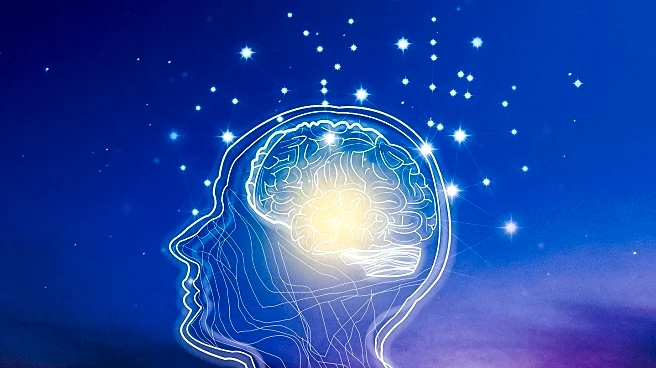What's Happening?
Recent psychological research has delved into the phenomenon of higher states of consciousness, often referred to as 'awakening experiences.' These experiences are characterized by a temporary expansion
and intensification of awareness, which can transform an individual's perception of the world. The study identifies three primary triggers for these experiences: psychological distress, the beauty and stillness of nature, and spiritual practices such as meditation. While some neuroscientists suggest these experiences may be linked to brain activity, particularly in the temporal lobes, others argue for a psychological explanation. The research highlights that these experiences, although brief, can have a profound and lasting impact on individuals, often leading to increased trust, confidence, and optimism.
Why It's Important?
Understanding higher states of consciousness is significant as it offers insights into human perception and mental health. These experiences can lead to positive psychological shifts, suggesting potential therapeutic applications for individuals experiencing stress or depression. The research challenges traditional views of consciousness, proposing that our typical perception of reality is limited. By exploring these states, psychologists can better understand the human mind and develop methods to induce beneficial mental states. This has implications for mental health treatment, potentially offering new avenues for therapy and personal growth.
What's Next?
Further research is needed to explore the mechanisms behind awakening experiences and their potential applications in mental health. Psychologists may investigate how to create conditions conducive to these experiences, such as through meditation or nature exposure. Additionally, the study of these states could lead to a broader understanding of consciousness and its impact on human behavior and well-being.
Beyond the Headlines
The exploration of higher states of consciousness raises ethical and philosophical questions about the nature of reality and human perception. It challenges the assumption that our normal consciousness provides an objective view of the world, suggesting that there may be deeper, more meaningful ways to experience life. This could lead to a cultural shift in how society views mental health and personal development.










